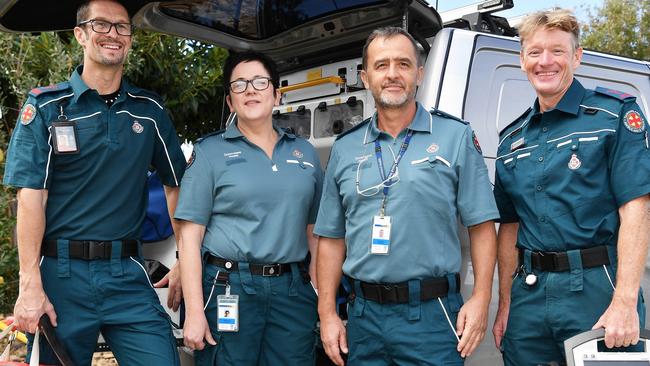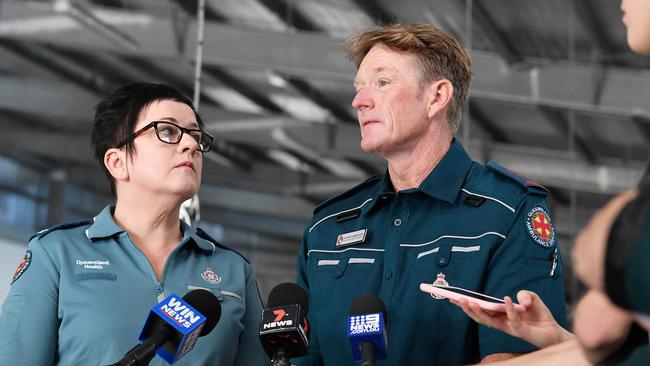Mental health program helps QAS paramedics better respond to mental health crisis
People experiencing a mental health crisis can now be treated in their own homes instead of being rushed to overcrowded emergency departments.

Community News
Don't miss out on the headlines from Community News. Followed categories will be added to My News.
People experiencing a mental health emergency can now be treated in their own homes instead of being rushed to overcrowded emergency departments.
Queensland Ambulance Service rolled out its Mental Health Co-Responder Program for the Sunshine Coast on Monday.
It pairs a mental health clinician with a specialist paramedic to respond to patients experiencing a mental health crisis.
Advanced care paramedic David Hardstaff said the program would make a big difference for paramedics and overall patient care.
"On average we would attend one or two mental health cases a day out of six days and generally I didn't have an option not to take them to hospital," Mr Hardstaff said.
During the first two days the program responded to four patients and in each case was able to treat the person in their own home.
He said previously paramedics would give any immediate medical treatment needed for a person suffering a mental health crisis such as an anxiety attack, depression or suicide.

The patient would be taken to hospital to undergo mental health treatment but Mr Hardstaff said this could be distressing.
Mental health clinician Rachel McCready said the program was a long time coming.
She said the best outcome for patients was to be treated in their own homes.
"Depending on the situation, coming into an emergency department can be quite confronting and overwhelming so if we can review people within their own home it can be a much more comfortable and positive outcome," she said.
Three clinicians are based on the Sunshine Coast and the program was also introduced at Cairns and Townsville.
Program director Sandra Garner said more than 1000 patients received referrals and appropriate follow-up treatment during earlier stages at Brisbane the Gold Coast.
"This means better healthcare outcomes for Queenslanders and a reduction in emergency department presentations, which has flow on effects for the entire health system," she said.
Last year the Queensland Ambulance Service responded to more than 60,000 people experiencing a mental health crisis, a 23 per cent increase from the previous year.
"More than 80 per cent of people experiencing a mental health crisis, accessing services via Triple 0, are in a complex, multifaceted crisis, unfortunately including suicide crisis," Ms Garner said.
"Historically, most people seen by paramedics in a mental health crisis were transported to a hospital emergency department.
"It's recognised that first responders are in a unique position to determine the course and outcome of a patient's mental health crisis, which is why the expansion of this service is so important."
For help call Lifeline on 131 114.
Originally published as Mental health program helps QAS paramedics better respond to mental health crisis



